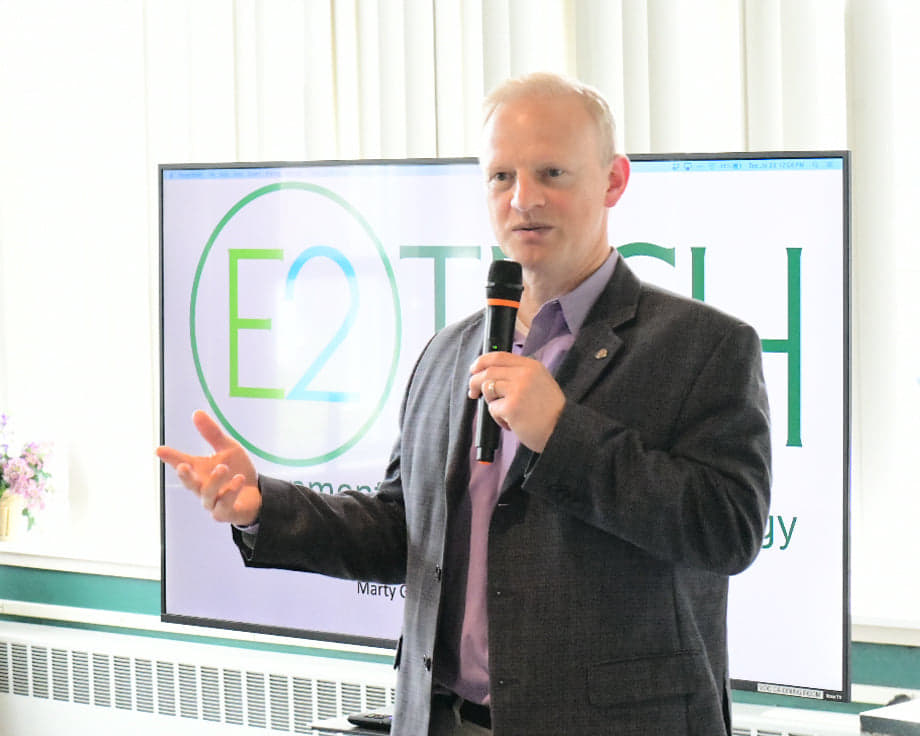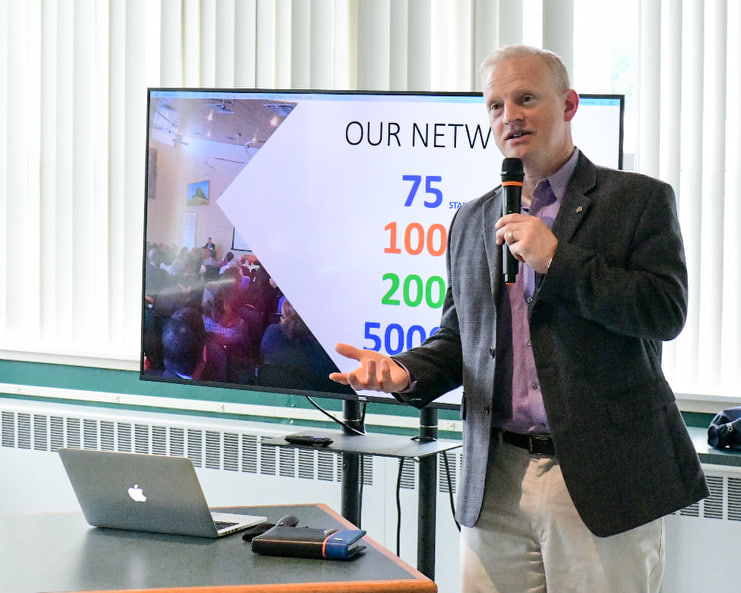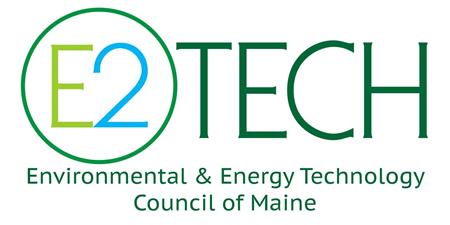Marty Grohman, Executive Director of E2Tech (Environmental & Energy Technology Council of Maine) was our guest and speaker on Tuesday July 23, 2019. Marty is Vice President of the Biddeford-Saco Rotary Club and is a former State Representative from Biddeford. When he was in the legislature, he was on the energy committee.
E2Tech was originally an off-shoot of the Maine State Chamber of Commerce and still has ties to that organization. They are known for conducting forums to educate attendees on issues like land-based aquaculture and energy developments. They do not take policy positions. They are a network of 75 start-ups, 100 support organizations, and 5000 companies in the public, private, non-profit and education sectors.
 Marty reported on the result of the last legislative session in which the legislature tended to push policy towards “clean energy”. Defining “clean energy” is where disagreements arise. There were a few “wins" for solar including elimination of gross meeting and creating a statewide property tax exemption for residential and commercial solar property.
Marty reported on the result of the last legislative session in which the legislature tended to push policy towards “clean energy”. Defining “clean energy” is where disagreements arise. There were a few “wins" for solar including elimination of gross meeting and creating a statewide property tax exemption for residential and commercial solar property.Efficiency and electricity also made gains in the last session. This included RGGI (Regional Greenhouse Gas Initiative) funding flexibility to incentivize lower emissions from the power sector. There was also an aggressive push toward heat pumps with a goal of 100,000 units by 2025. The latter presents a challenge for low income Mainers due to up-front costs.
Several issues were deferred by ordering studies. These include an energy independence plan, transmission to enable renewable energy in Maine, and electric storage. Also under study is the concept of creating a Maine Power Authority. In addition, Marty noted that much “shouting and yelling” on social media was NOT a high point of the legislative year.
If you are interested in a real-time view of energy use in New England, Marty mentioned an ISO New England Application that can be downloaded to your smart phone. Data for each state can be viewed individually. The app shows usage of natural gas, nuclear, renewables, coals, oil and other. It also shows the current market rate per MWH (megawatt hour).
 Historically, Maine energy usage has peaked in winter months. More recently, with proliferation of air conditioning, Maine's energy usage peak comes in summer. Marty noted that Maine uses oil to heat at a higher rate than any other state. One of the most effective steps to energy efficiency is conducting an energy audit and following recommendations to reduce heat loss.
Historically, Maine energy usage has peaked in winter months. More recently, with proliferation of air conditioning, Maine's energy usage peak comes in summer. Marty noted that Maine uses oil to heat at a higher rate than any other state. One of the most effective steps to energy efficiency is conducting an energy audit and following recommendations to reduce heat loss.For more information, visit their website: https://e2tech.org/

